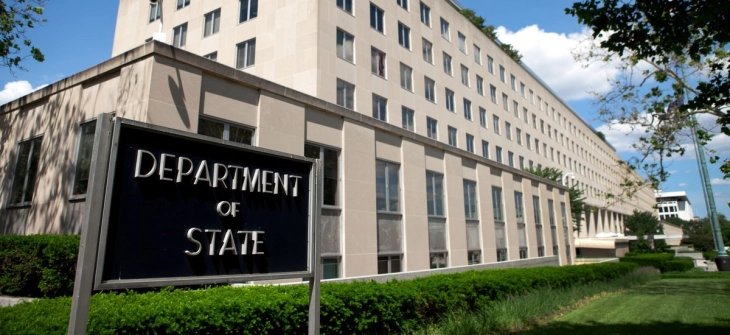US State Department: Threat of terrorist attacks in North Macedonia “average high”
- The main counterterrorism issue North Macedonia faced in 2021 was the return of foreign terrorist fighters from Syria and Iraq, according to the latest report from the U.S. Department of State on global terrorism in 2021. The report assesses the terrorist threat level in North Macedonia as “average high” or medium.

Washington, 28 February 2023 (MIA) – The main counterterrorism issue North Macedonia faced in 2021 was the return of foreign terrorist fighters from Syria and Iraq, according to the latest report from the U.S. Department of State on global terrorism in 2021. The report assesses the terrorist threat level in North Macedonia as “average high” or medium.
There were no terrorist incidents reported in North Macedonia, Serbia, Kosovo, Albania or Greece in 2021.
The return of the foreign terrorist fighters in North Macedonia, as well in Kosovo, represents an issue due to the “individuals’ ability to establish violent extremist cells, plan attacks, and radicalize others to violence.”
According to the National Committee for Countering Violent Extremism and Countering Terrorism (NCCVECT), around 143 citizens of North Macedonia (excluding children) in recent years have traveled or attempted to travel to Syria, to Iraq, or both, to join terrorist groups. Of these 143 adults (133 male, 10 female), 38 were killed, 79 returned, five are believed to remain in Syria, and two are in prison or a refugee camp. Another 16 (11 men and 5 women) were repatriated, and three FTFs were deported from other countries.
The threat of terrorist attacks in North Macedonia was assessed to be “average high,” or medium, as ISIS members and sympathizers maintained a presence in the country.
In July 2021, the government repatriated four FTFs and 19 family members.
Furthermore, the report states that the legislative framework of North Macedonia is adequate to prosecute individuals suspected of committing or aiding terrorist activities or participating in foreign wars. Low sentencing for terrorism-related offenses remains a challenge but has improved, compared with previous years, and sentences are generally longer than in other Western Balkans countries.
The U.S. Department of Justice provided mentoring and battlefield evidence training to case prosecutors and investigators.
North Macedonia is also a member of the institutions countering the financing of terrorism, such as the “MONEYVAL” regional body. The report also notes that the government drafted a new law on Prevention of Money Laundering and Terrorism Financing to implement the provisions of Directive V (2018/843) and harmonize it with EU legislation.
North Macedonia’s Financial Intelligence Office (FIO) received five reports for suspicion of terrorist financing from banks in 2021, and it submitted 11 total reports on suspicion of terrorist financing to competent authorities for processing.
North Macedonia is also involved in the fight against violent extremism and in 2021 it continued its close cooperation with other Western Balkan countries in countering terrorism and violent extremism, and has participated in the implementation of several projects related to these issues.
The government implemented capacity building projects supported by the United States, the United Kingdom, Italy, the Netherlands, Norway, and others. These efforts will help North Macedonia prepare for its 2023 OSCE chairpersonship, says the report.
According to the U.S. State Department, the terrorism threat in Albania consists of the attempts of foreign terrorist organizations to radicalize the Albanian youth to violence, as well as Iran’s state-sponsored activity directed against the Iranian opposition group Mujahedeen-e Khaleq, members of whom resettled in Albania. ad/nn/
Photo: MIA Archive







